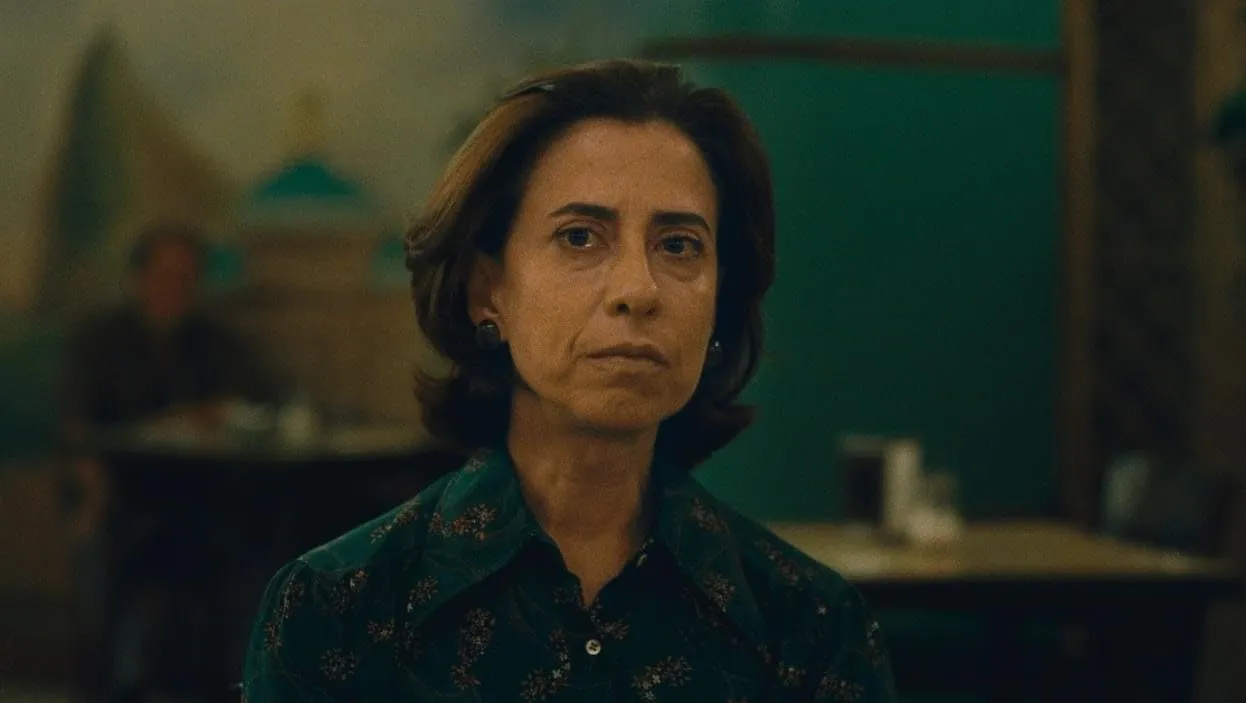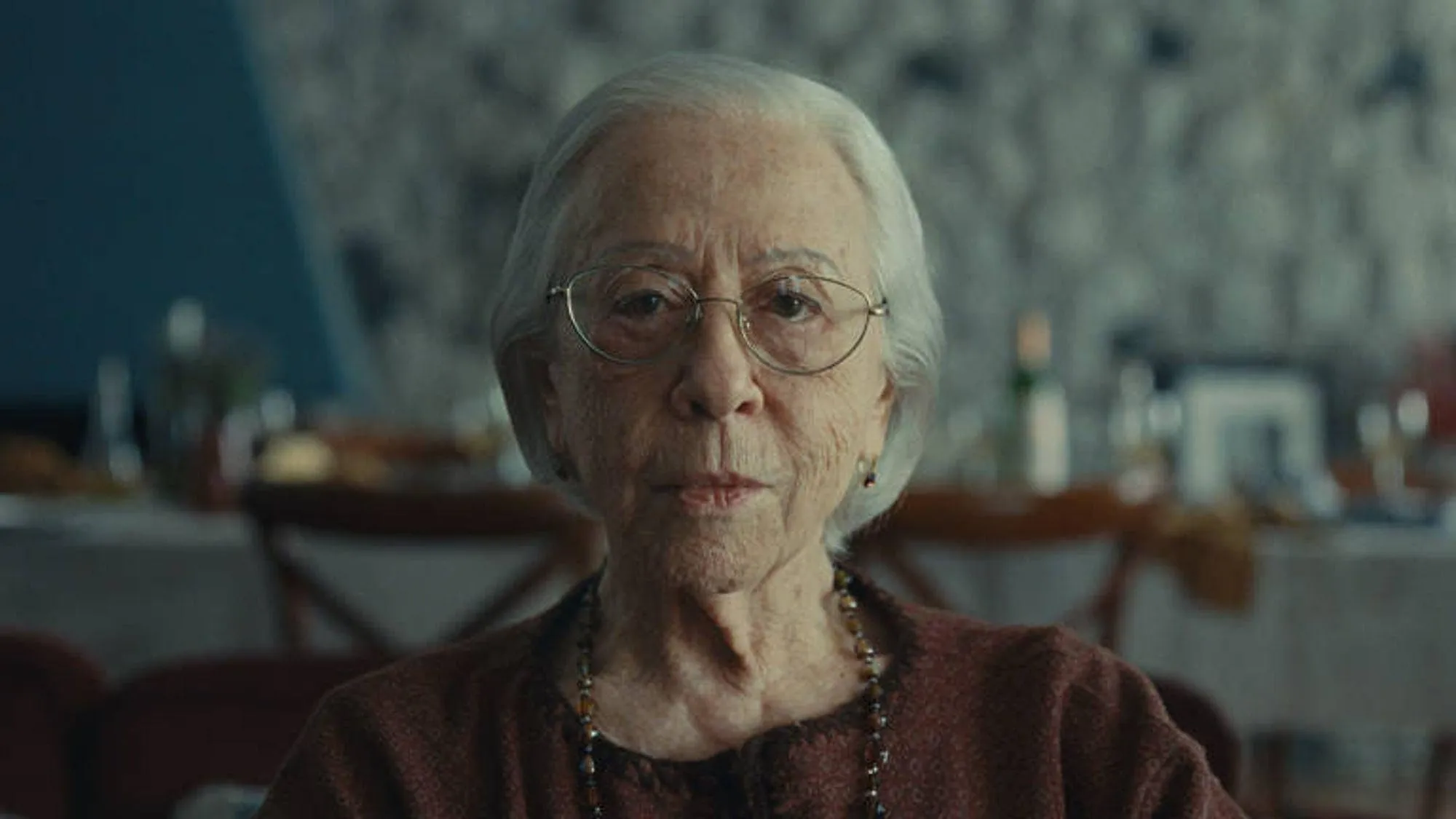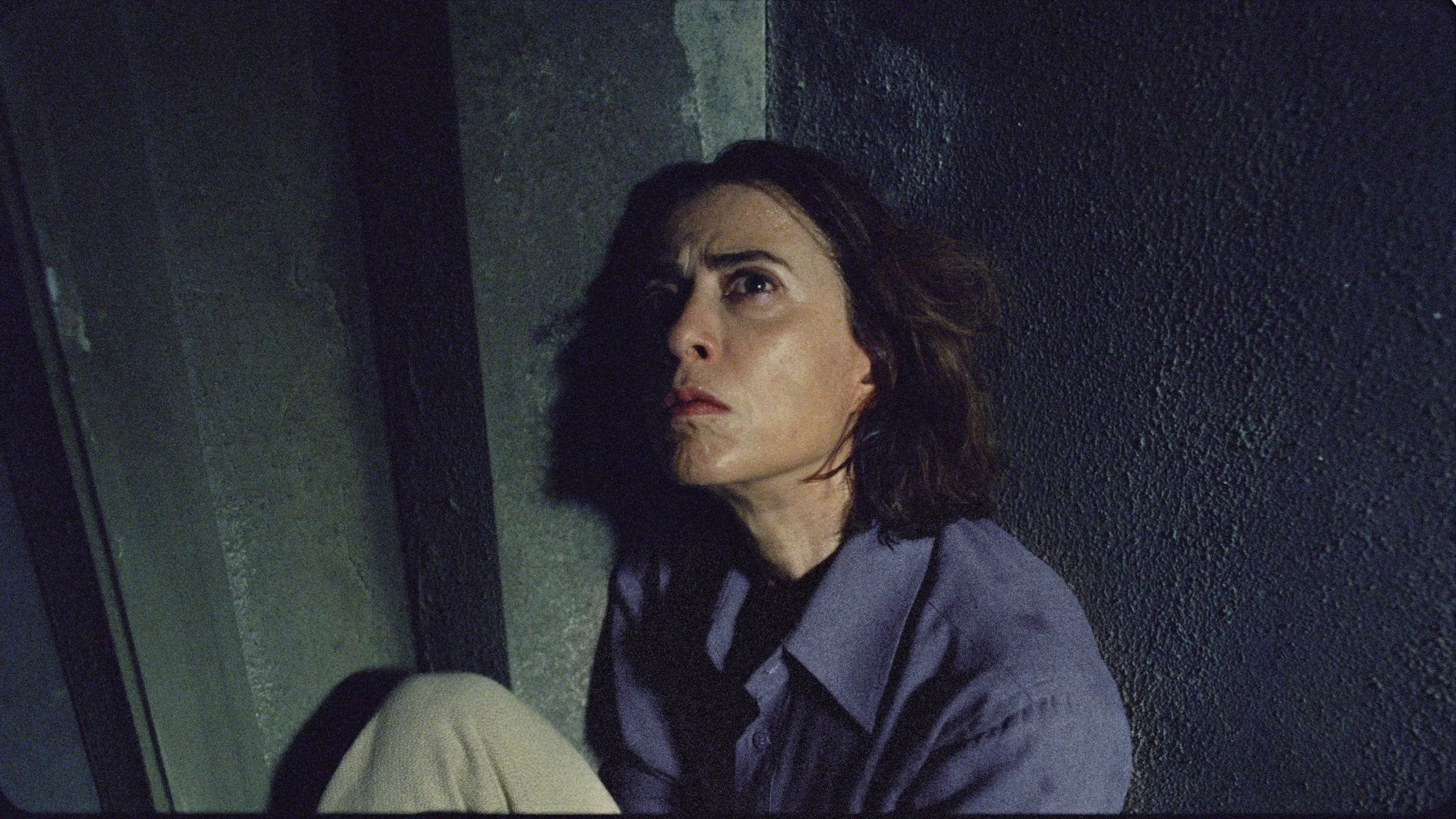Walter Salles’ “I’m Still Here” tells the deeply moving true story of the Paiva family and their experiences during Brazil’s military dictatorship from the 1960s through the 1980s. Living in sun-drenched Rio de Janeiro, the large extended family led a joyful life surrounded by friends. But darkness soon falls over their household after Rubens, the father, is suddenly taken away by the regime for interrogation and never returns.
Left to raise their five children alone, Rubens’ resilient wife Eunice rises to the challenge. In a quietly powerful performance, Fernanda Torres captures Eunice’s inner strength and fortitude as she shields the family from the full harshness of their new reality. As timely interviews reveal the system’s refusal to acknowledge victims like Rubens, Eunice begins piecing together his secret life of political involvement.
Through Salles’ empathetic direction and Adrian Teijido’s gorgeous cinematography blending grainy film with nostalgic home movies, the film offers a moving window into this period in Brazil’s history. But it also celebrates the indomitable human spirit through family bonds that prove mightier than any regime that seeks to undermine happiness and freedom. An anchor for her brood, Eunice’s journey of perseverance and self-reinvention over the decades to follow is eye-opening.
For those with an interest in Latin American politics and compassionate biopics, “I’m Still Here” presents an intimate portrait of one family’s hard-won resilience and resistance in turbulent times that deserve not to be forgotten.
The Paiva family’s story
We meet the Paiva family living joyfully together in Rio de Janeiro during the 1970s. Nestled near the beach in a house always full of laughter and friends, they find happiness despite the military dictatorship tightening its grip outside. Rubens works as an engineer while caring for his wife Eunice and their five children. Though not wealthy, an intellectual curiosity and deep bonds unite them.
However, darkness falls when soldiers arrive one day to take Rubens away “for questioning.” His arrest shatters the family’s security as Eunice is left raising the children alone. With little information on Rubens’ fate, she shields the kids from the full harshness of reality. Yet Eunice displays inner strength, protecting her family through uncertainty and providing stability in Rubens’ absence.
Salles doesn’t rush Eunice’s journey, showing her perseverance as she shields the children from the truth. Struggling with expenses and an unsupportive system, she begins studying law. Her determination to honor Rubens’ memory and fight for others depicts quiet heroism. All the while, small kindnesses like embraces and borrowed clothes sustain the family.
As the film jumps ahead, we see Eunice hasn’t let political issues fade. She pushes for acknowledgment of victims and keeps memories alive through photos and history. Most beautifully, the family rebuilds over time. Children grow up and have families of their own, transitioning back to the lively clan of the early scenes. Even through sadness, their spirit of resilience carries on Rubens’ legacy and Brazil’s democratic values for new generations. In capturing the intimate highs and lows, Salles crafts a moving portrait of one family’s enduring courage.
Understated Mastery
At the heart of “I’m Still Here” is Fernanda Torres’ intensely moving performance as Eunice Paiva. Bringing the character to life with understated grace, Torres conveys her enduring resilience through the slightest gestures and expressions. Beyond portraying Eunice’s inner strength in raising her family alone, Torres also taps into the deep reservoir of grief no one outside knows she bears.
As Eunice navigates Rubens’ absence and uncertain fate, Torres subtly shows a woman shielding her children from full knowledge of their pain. Yet in quiet moments, Torres lets anguish flicker across her face, revealing emotional depths. Her moments showering away the grime of interrogation linger with their solitary intimacy. Even discussing Rubens in later years, Torres’ downcast eyes hint at scars that never heal.
Selton Mello also brings dignified humanity to Rubens, leaving a fuller impression as a loving father than the vague revolutionary others depict. Meanwhile, Fernanda Montenegro brings bittersweet full circle Torres’ and Salles’ long careers. Appearing late in dazzling black, Montenegro speaks through expressive eyes, lighting up at Rubens’ memory. Her limited scenes still linger for their cultural weight as she passes the role to her daughter.
Under Salles’ sensitive direction and alongside such skilled partners, Torres offers a performance of profound stillness. Her internalized anguish invites reflection on the toll dictatorial “disappearances” take on those left yearning for justice and closure. Through subtle mastery, Torres’ intensely moving work deserves recognition as one of this generation’s finest portrayals of resilient spirit in the face of darkness.
Bringing the Past to Life
Walter Salles crafts “I’m Still Here” with deeply empathetic direction, drawing viewers intimately into the Paiva family’s world. He handles their story compassionately while ensuring the political backdrop remains unignorable. Bolstered by Salles’ personal connection to the real family, his filmmaking draws out powerful performances depicting their courage with grace.
Adrian Teijido brings the 1970s Rio settings vibrantly to life through cinematography. Yet an unsettled edge develops as the regime’s shadow looms, seen in Super 8 home movies capturing youthful revelry before tensions erupt. Interweaving nostalgic footage with the present scenes, Teijido transports audiences both into joyous memories and unforgettable interrogation rooms.
The visuals are complemented by Warren Ellis’ elegant yet evocative score. As carefree tones accompany early scenes of volleyball and souffle-making, his piano subtly shifts the mood when darkness falls. Ellis’ music enhances signature moments like Eunice showering away her ordeal or Rubens’ photo uplifting elderly Eunice. He uses melody to draw out the film’s understated yet profound emotion.
Salles’ direction, Teijido’s cinematography, and Ellis’ compositions elegantly synchronize to immerse viewers in this family’s world. By bringing the vibrant past and somber present to life with such humanity, they ensure “I’m Still Here” remains an intimate yet impactful tribute to courage in turbulent times that echoes long after final credits.
Bringing Brazil’s Dark Past into the Light
“I’m Still Here” shines a much-needed light on one of Brazil’s darkest historical chapters. By depicting the experiences of the Paiva family, Salles honors the thousands who “disappeared” after opposing the dictatorship through peaceful means. In bringing this affecting personal story to screens, he ensures one family’s nightmare can never be denied or forgotten.
Eunice’s resilient spirit in advocating for acknowledgment of victims like her husband Rubens took on profound significance. For many years, the military regime dismissed torture and executions as necessary to combat so-called “terrorism.” Eunice worked tirelessly to counter such propaganda and see human rights violations formally recognized once democracy returned.
Her efforts took on added weight as many countries in South America grappled with how to reconcile with the past. By showing Eunice’s dedication to keeping memories of the disappeared alive through history and photos, Salles warns of the ease with which tyrannical regimes attempt to erase opponents from the record. Only through the stories of survivors and resistors can the full horrors be shared and never repeated.
The film holds enduring importance not only for Brazilians but for all those striving to establish liberal democracies after periods of oppression. “I’m Still Here” serves as a moving reminder of everyday people’s courage in resisting even the most powerful of dictatorships through persistence, compassion, and humanity in the face of darkness.
Finding humanity amid darkness
Walter Salles’ “I’m Still Here” tells a deeply moving personal tale while shining a light on troubling historical truths—crafting an impactful work that resonates through both intimate family drama and sociopolitical commentary.
His graceful direction and Adrian Teijido’s lived-in cinematography immerse viewers within the world of the Paivas, conveying the family’s enduring bonds and resilience in the face of unspeakable loss. This grounded tone allows their experience of loss, pain, and uncertainty to profoundly affect the audience.
While momentum fades somewhat towards the finale by stretching beyond 1971, the earlier scenes maintain electric tension through Rubens’ absence and Eunice’s interrogation. In dwelling within the intimate space of one household, Salles makes political terrors remarkably visceral.
Beyond showcasing individual resolve, the film pays heed to broader issues—Eunice’s ongoing advocacy honoring those who resisted through activism now airbrushed from history. Her efforts left viewers contemplating how nations reconcile past wrongs and prevent recurrence.
Most powerfully, it reminds us how even the darkest regimes cannot extinguish hope, compassion, joy, and music from everyday lives. In depicting humanity’s ability to find light amid surrounding shadows, “I’m Still Here” crafts a story certain to endure through the years as both an intimate portrait and a rousing call to resist oppression through solidarity, perseverance, and reclaiming collective memories.
A tribute to hope in darkness
Walter Salles’ “I’m Still Here” beautifully honors an ordinary family’s extraordinary courage in Brazil’s shadowed past. Through Fernanda Torres’ profound performance and Salles’ empathetic direction, the film offers a deeply moving portrait of the resilient Paiva spirit.
It commemorates the likes of Eunice, who refused to let oppression quash happiness, keeping memories alive through advocacy and rebuilding family bonds. Her quiet heroism and those resisting non-violently under the dictatorship deserve recognition.
By intimately depicting oppression’s toll and the hope that proved mightier, the film serves as an impactful reminder. It shows how even the darkest times could not extinguish music, compassion, and determination to shape a better future.
For anyone with an interest in Latin American history or stories of ordinary lives amid political upheaval, “I’m Still Here” makes an unforgettable piece of cinema. Salles crafts both a tribute to the indomitable human spirit and a beautifully touching love letter to his home country. It deserves acclaim as one of this generation’s finest historical dramas.
The Review
I'm Still Here
Walter Salles' "I'm Still Here" offers a profound yet understated tribute to resilience in turbulent times. Through intimate direction and finely tuned performances, the film immerses viewers in one family's enduring spirit of resistance. While depicting darkness, it celebrates humanity's ability to find light and rebuild. Salles deserves praise for this impactful and masterfully crafted work.
PROS
- Deeply moving and authentic portrayal of a family's fight for dignity
- Subtle and nuanced performances, particularly from Torres
- Evokes period vividly through cinematography and production design.
- Sheds light on an important historical chapter through a personal lens
- Highlights humanity's capacity for compassion amid injustice
CONS
- Climactic pacing drags a bit in the latter segments.
- Title doesn't fully represent the intimate family drama aspect.





















































Discussion about this post